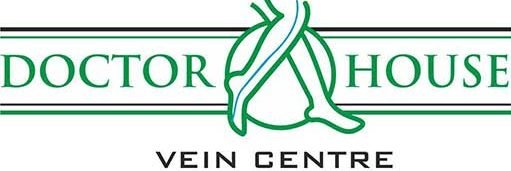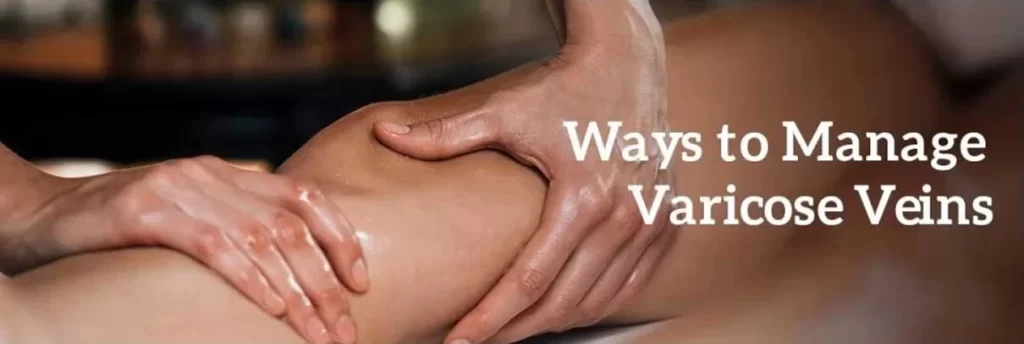If Varicose veins are not treated in time, the condition may lead to chronic pain and discomfort. However, there are many treatment options and lifestyle choices that can help you control your symptoms. You can even exercise with varicose veins, says Dr Shoaib Padaria, the pioneer of laser treatment of Varicose veins in India.
How to Manage Varicose Veins
1. Compression stockings
2. Proper shoes
3. Avoid prolonged sitting or standing
4. Exercise
5. Stop smoking
6. Elevate feet
7. Losing weight and healthy eating
8. Varicose veins treatment
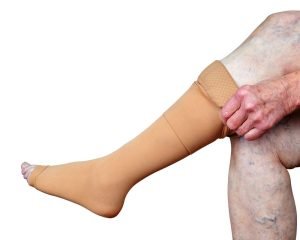
1. Compression Stockings
Veins have valves that keep your blood flowing in one direction. When these valves do not work properly, blood can pool in the legs, causing dilated veins called Varicose Veins. Compression stockings are tight-fitting socks that put mild pressure on your legs and prevent the veins from enlarging and encourage proper blood flow from the legs towards the heart. Compression stockings may also help prevent blood clots.
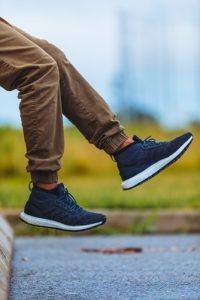
2. Proper Shoes
There are genetic risk factors that predispose you to varicose veins—and age play a role—but certain lifestyle choices also substantially increase your odds of developing this potentially painful vein issue. Studies have found that wearing high-heeled shoes may increase your risk of developing varicose veins. If you already suffer from varicose veins, high heels can worsen these veins. Try a shoe with good arch support, a nursing shoe, or a stylish flat.


3. Avoid Prolonged Sitting or Standing
If you have a job that requires several hours of standing or sitting daily (e.g. nurses, teachers, retail sales executives, computer operators), it is important to move the legs and walk at intervals of one to two hours.
When you stand or sit for prolonged periods, you are putting undue stress on your leg veins. When you sit for several hours like truck drivers and office workers do, you are compromising blood flow. Stagnation of blood in the legs not only may be responsible for Varicose veins but may also lead to blood clots in the veins (Deep Vein Thrombosis)
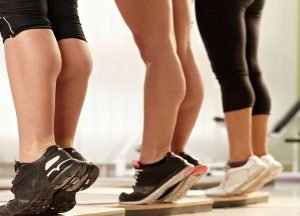
4. Exercise
Exercising with varicose veins may be painful, but certain activities like walking, biking, and swimming can help improve blood flow through the leg veins. Ideally, you want to move your calf muscles, which get the blood flowing through your legs. It is important to warm up before exercising with varicose veins, and it is generally important to avoid exercising after certain vein treatments. If you have varicose veins, consult at our centre with Dr Shoaib Padaria before beginning an exercise routine.


5. Stop Smoking
Smoking affects many organs in the body and can damage blood vessels as well. Smoking restricts circulation and narrows blood vessels, leading to poor circulation and may contribute to the development of varicose veins.

6. Elevate Feet
As part of varicose veins management, you can elevate your feet to help blood flow more freely into and back from your legs, which improves circulation. Elevating your feet can help with pain and leg swelling. Reducing swelling may also help in the healing of the painful varicose ulcers associated with vein disease.

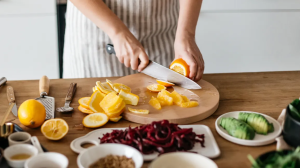
7. Losing Weight and Healthy Eating
Carrying extra pounds puts pressure on your veins which may worsen the blood pooling caused by poorly functioning vein valves. When you lose weight, you are also lessening the pressure that is put on your leg veins.
Losing weight cannot reverse varicose veins presence but may prevent any existing varicose veins from worsening in appearance. Eating a balanced diet is an important factor in maintaining a healthy weight. It is also important to watch your salt intake, leading to water retention, general heaviness, and added pressure on your legs.
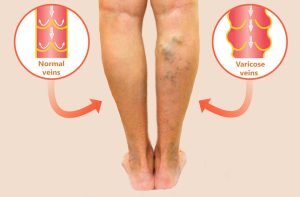
8. Varicose Veins Treatment
There are many varicose vein treatments available for those who want to rid themselves of varicose veins under a vascular specialist’s care. Varicose veins can return after treatment in some patients, so it’s important to make healthy lifestyle changes to support medical interventions. Generally, the more proactive you are with your health, the better the outcome.

Sclerotherapy is one treatment option for varicose veins. During this procedure, a vascular specialist will make injections into the varicose veins to reroute blood flow to healthier veins. Alternatively, endovenous thermal ablation like Laser Treatment or RFA relies on laser heat or high-frequency radio waves to reroute blood to healthier veins and shut down problematic veins.
Rarely, surgery for varicose veins is warranted. Still, when you are taking proactive steps—making healthy choices with your diet, quitting smoking, elevating your feet, and exercising—you stand a much better chance of avoiding surgery. You can also lower your risk of potentially dangerous complications like venous ulcers and blood clots. If you have questions about varicose vein management, call 022 23525001/ 022 23526001 and schedule an appointment with Vascular Specialist Dr Shoaib Padaria.
WHY ARE COMPRESSION STOCKINGS IMPORTANT?
Compression stockings are snug-fitting pieces of clothing for the legs. They look similar to other socks or stockings, but their unique design puts gentle pressure on your ankles and legs. Compression therapy is likely to be recommended if you have varicose veins or another type of venous insufficiency.
How Compression Stockings Help Veins?
Healthy veins have a series of valves that help push blood upwards to the heart. This promotes good circulation in the feet and legs. When someone has a vein disorder, however, leg valves don’t always work correctly. Without the needed pressure, blood can start to pool in the feet, triggering the pain, discomfort, and aesthetic issues related to varicose veins.
Compression stockings assist with blood flow. They can reduce the size of your veins, which increases upward pressure and improves circulation. Compression stockings can help with vein disease symptoms but do not stop the progression of the disease. Here are some of the ways this type of vein treatment can help:

Heavy or aching legs
Compression socks give your legs a rest. That way, they feel lighter and more comfortable throughout the day.

Swelling
Some people who have varicose veins experience pain, swelling, burning, or itching. By preventing blood from pooling, compression stockings can alleviate these symptoms.
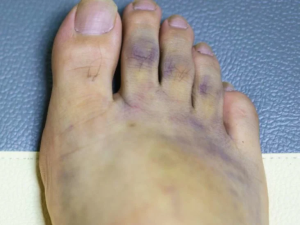
Poor circulation
If you usually have poor circulation in your toes, feet, ankles, or legs, this type of therapy may improve things significantly.
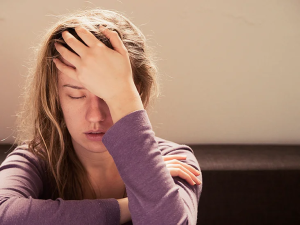
Dizziness
With good circulation, your heart doesn’t have to work hard to get blood to your tissues. This can reduce feelings of dizziness or lightheadedness. In addition to these benefits, compression stockings support your veins and may reduce the appearance of spider veins and varicose veins. They also help prevent serious conditions such as deep vein thrombosis (DVT) and leg ulcers.
Types of Compression Stockings
- There are three main categories of compression stockings, along with countless individual styles. Your doctor may prescribe knee-length or thigh-length stockings with the right amount of pressure, depending on your needs.
- Graduated compression socks are usually the ideal choice for vein treatments. They start tighter and get looser toward the top of your leg.
- Patients who aren’t able to be very mobile may benefit from specialized anti-embolism stockings. This type of compression therapy is usually firmer than other stockings for vein treatments. It provides extra protection against DVT when physical activity is challenging.
- Non Medical stockings (also called support hosiery) are general compression garments that focus on giving tired legs a rest. Athletes, pilots, and other people with aching legs may experience some benefits, but these are more for everyday use and prevention than part of the vein treatment process.
Why Are Compression Stockings Important?
- As people age, the risk of developing a vein condition becomes more likely. The walls of veins start to weaken, making it harder for them to transport blood correctly. Compression stockings can provide vein support. This is essential following vein treatments, such as endovenous laser ablation or sclerotherapy for varicose veins.
- Compression stocking can help with the symptoms of vein disease before treatment. We encourage patients to use them before treatment and one to two weeks after endovenous laser ablation treatment. One of the most important roles of compression socks is to prevent blood clots from forming. People who have chronic venous insufficiency (CVI) are at risk of DVT and pulmonary embolism, which are life-threatening. Because compression stockings promote healthy blood flow in the feet and legs, they can significantly reduce DVT risk. Wearing them may literally save your life.
- DO YOU HAVE TO WEAR COMPRESSION STOCKINGS ALL THE TIME? Compression stockings are designed to be worn during the day. It would help if you took them off before going to bed at night. When you get out of bed in the morning, put them on again. WHY DO COMPRESSION STOCKINGS REQUIRE PROFESSIONAL FITTING? Each pair of compression stockings needs to fit your legs perfectly. Such a complex measuring process always requires the expertise of a vein specialist. The stockings have to apply just the right amount of pressure to work properly, not too much or too little. In fact, the pressure varies in different parts of the garment. The bottom part near your ankles needs to squeeze your legs more firmly than the area closer to your calves.
- WHO SHOULD WEAR COMPRESSION STOCKINGS? Individuals with varicose veins or CVI should wear compression stockings. People who are at risk for DVT, such as someone recovering from surgery, also need them. If your job requires you to spend extended periods of time standing or sitting, you may want compression socks for extra support.
FAQs for Compression Stockings
Here are the answers to several common questions about compression stockings. This information is general. It’s always a good idea to ask your doctor for more specific recommendations.Learn More About Professional Compression Treatments
If you have varicose veins or another type of circulatory issue, there are many vein treatments available that can help at Doctor House Cardio Vascular Center; we have caring professionals who want to help you find relief. Please find out more about high-quality compression stockings and other options that really work by contacting us right away. You can also reach us by calling 022 23525001/23526001
